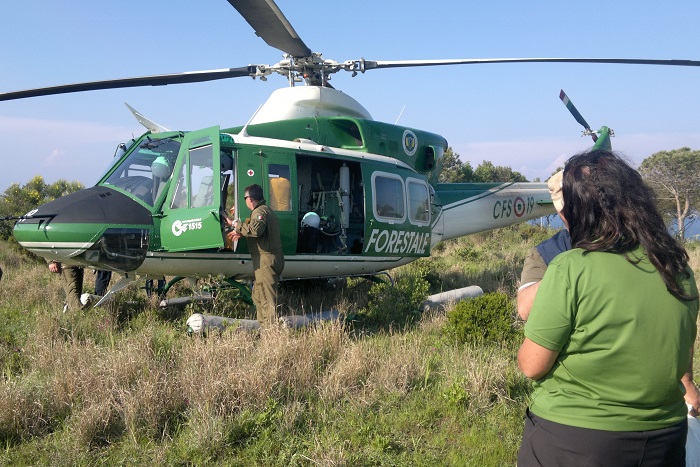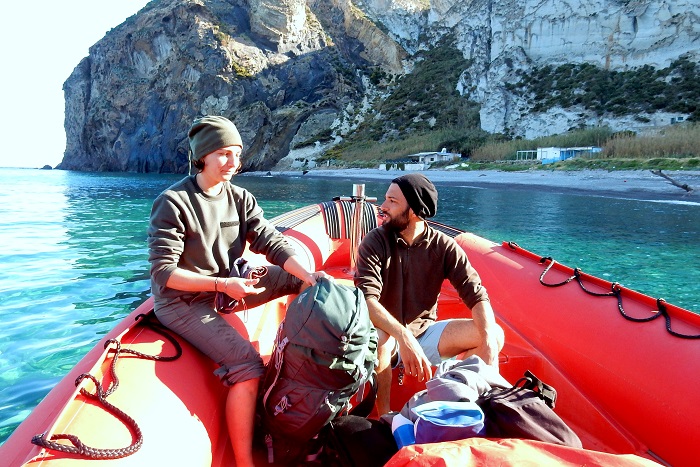Bird protection camps on Ponza and Palmarola

Ponza is a sparsely populated island, Palmarola is totally uninhabited. Its location far from the coast of Lazio makes it an important stepping stone for migratory birds. From March to May, bird-trappers travel here to set up traps for whinchat and other long-distance migrants, while hunters shoot quails and turtle doves outside the hunting season in spring. The small population here plays into the hands of the poachers - as every stranger stands out. Even during the crossing with the ferry travellers recognised as bird guards are reported to the poachers, which usually leads to a complete standstill of the hunting activity.
In order to get the situation under control, we have developed two strategies: At our bird protection camps we rely on a conspicuous overt and permanent presence as a deterrent on the one hand, and on small undercover covert actions in order to convict the poachers.

Each year in April, members of our partner association LAC monitor the most important potential hunting grounds on Ponza. They are overtly visible for everyone and safeguard the migration with their presence. Whereas in the past, dozens of shots were fired each day, today hardly more than ten are registered during the two- to three-week operation. The participants also search for trapping nets and traps, but nowadays the number of active trapping sites has reduced significantly.
In order to catch the few remaining bird-trappers on Ponza, CABS members inspect the known places undercover and independently of the overt teams members of the bird protection camp. The poachers are then either directly nabbed by the police or subsequently arrested with the help of hidden cameras.
On the remote island of Palmarola we also use both methods: Either our members camp on the island or anchor with a boat off the coast, or they hide on the island and try to collect evidence against the poachers. On Palmarola, too, we have been successful with this strategy - poaching and bird-trapping have significantly declined here since the beginning of our operations in 2015.
The Karl Kaus Foundation has supported us for many years in the financing of our operations on Ponza and Palmarola.






